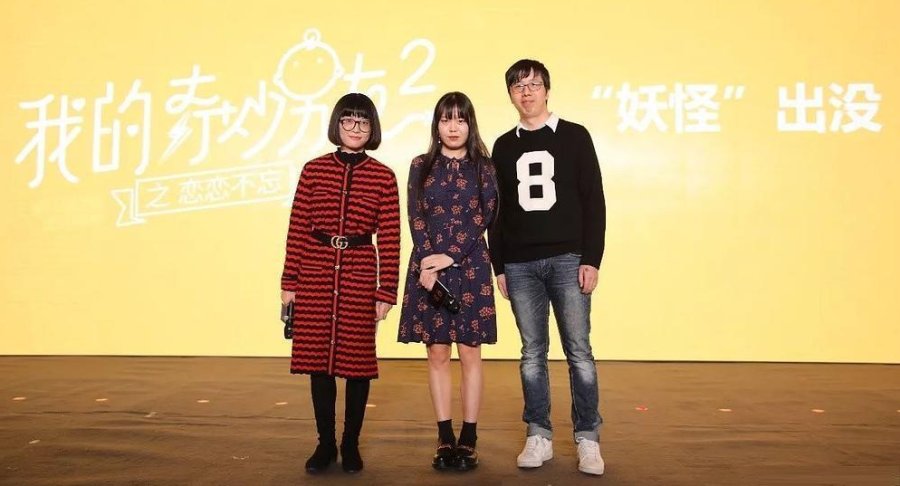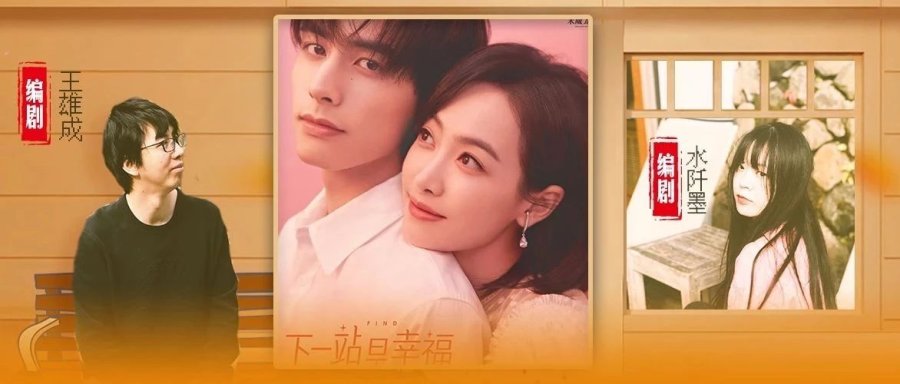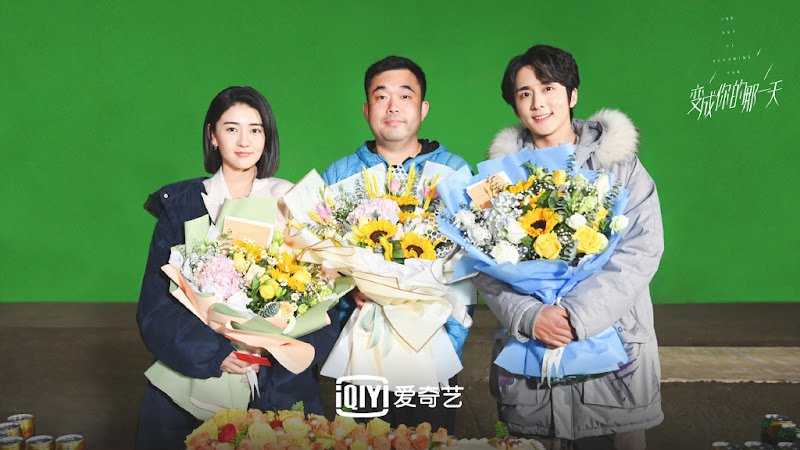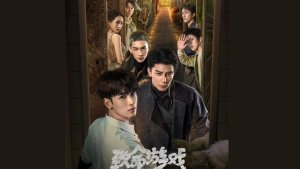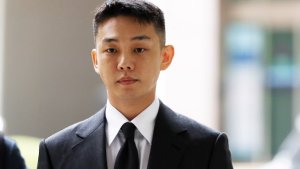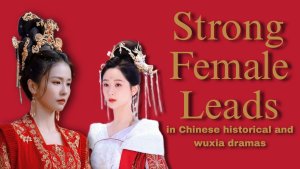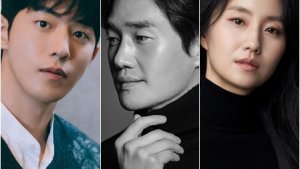 Revisiting My Co-Writers: Our First Dramas
Revisiting My Co-Writers: Our First Dramas
Why do you like watching romantic dramas?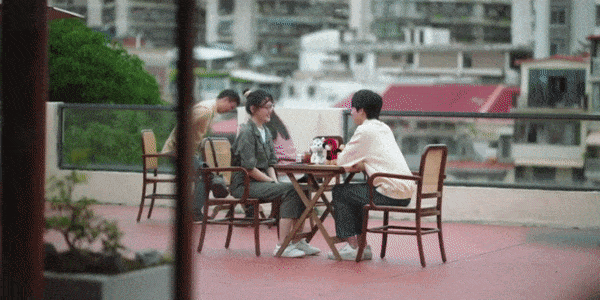 |

Why do you like watching romantic dramas? For me, watching a romance is like after-dinner dessert. I don't like sweets, but I like watching light-hearted romance or rom-com dramas before going to bed. The sugary sweetness of the couple's romance gives me a good feeling that despite all the obstacles everything will be well, and in the end, the couple will be together. The ease of feeling gives me a good night's sleep to be ready for tomorrow's problems.
In dramaland, so many romantic dramas are created with promises of gifting positive feelings to their audiences. As stated in the GIF above, to meet the psychological needs of romance-genre lovers. However, creating a good love story isn't as easy as people think. Have you ever started a drama because the trailer or synopsis looks good or because a certain actor/actress is the lead, only to discover that the main plot doesn't make sense or the subplots are all over the place and disconnected from the main plot? As I was writing this article, I dropped a romance drama midway. Despite the sexy male lead, a bunch of eye candy, and steamy kisses, nothing helped the bad storytelling. I ranted in the drama's comment section: "Who the heck is the screenwriter?!"
For a romantic drama, or actually, a drama of any genre, the director and actors are the frontliners, but the screenwriter is the core. If the plot is weak, no matter how good the cast and directing skills are, they will not be able to save the drama. Nowadays, with so many dramas being released, audiences can be pickier of choosing a story and thus have high expectations for screenwriters to create a compelling story. Romance genre screenwriters cannot just use emotional disputes to create conflicts in a couple's relationship. The journey from how a couple meets to live happily ever after the drama ends can be a rocky road littered with clichéd dialogue, pointless plots, and one-dimensional characters, in the end, resulting in a bad drama.
On the contrary, when I watched Hi Venus while it was airing, fellow watchers and I made comments on the drama's page on how well the protagonist's characters were written. I will discuss the characterization when we reach the specific drama section below. I looked up the screenwriter, and I found out that I watched every drama that was written by Wang Xiong Cheng, either by himself or together with his wife Shui Qian Mo! I thought about those dramas and realized all stories are original screenplays (not novel adaptations) with interesting plots covering contemporary issues faced by realistic characters (with one exception) that viewers can relate to.
As I researched more about the screenwriter couple, I found some interesting facts to share with you, whether you are Chinese drama watchers in general or modern romance drama fans in particular. This article is mainly about them and their works, unquestionably the subjects will be the drama plots and the characters they created, not directing, editing, acting, cinematography, or OST. I will also mention some producers and directors who frequently work with the couple in the same production team. If you're interested in watching the dramas discussed below, please be aware that there might be minor spoilers on the plot and medium spoilers on the characters.
Now let's get to know a little bit about this screenwriter duo!

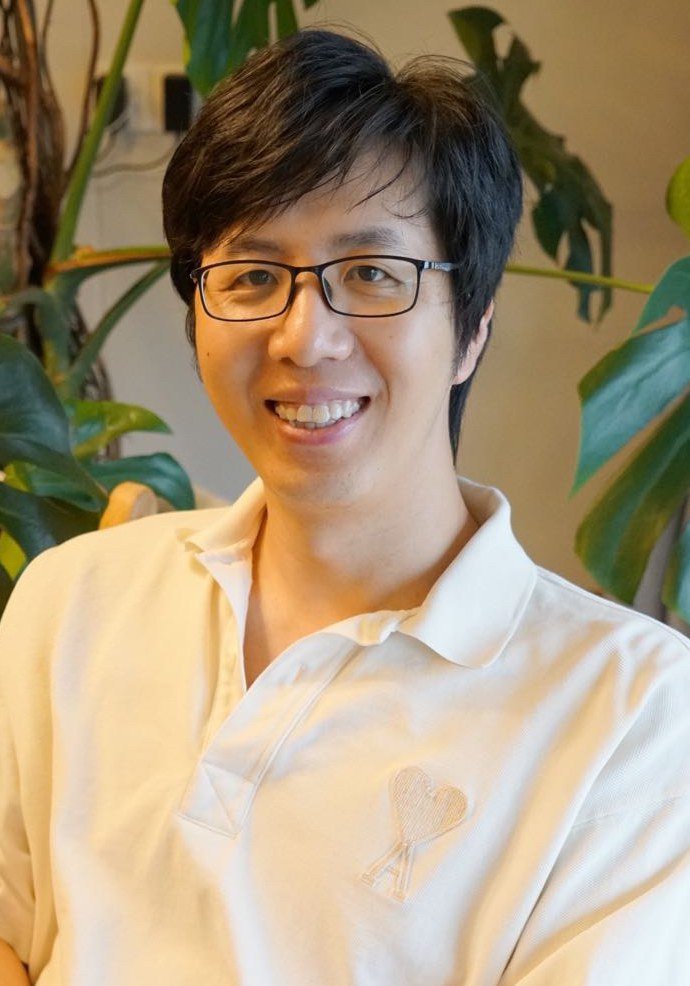 Wang Xiong Cheng (王雄成), further referred to as Wang, was born in Hunan, China, in 1984. Wang started writing and publishing novels in 2004 when he studied at Beijing Jiaotong University majoring in Math, where he later graduated. He also wrote many editorial articles and once had a fiction column in a magazine.
Wang Xiong Cheng (王雄成), further referred to as Wang, was born in Hunan, China, in 1984. Wang started writing and publishing novels in 2004 when he studied at Beijing Jiaotong University majoring in Math, where he later graduated. He also wrote many editorial articles and once had a fiction column in a magazine. 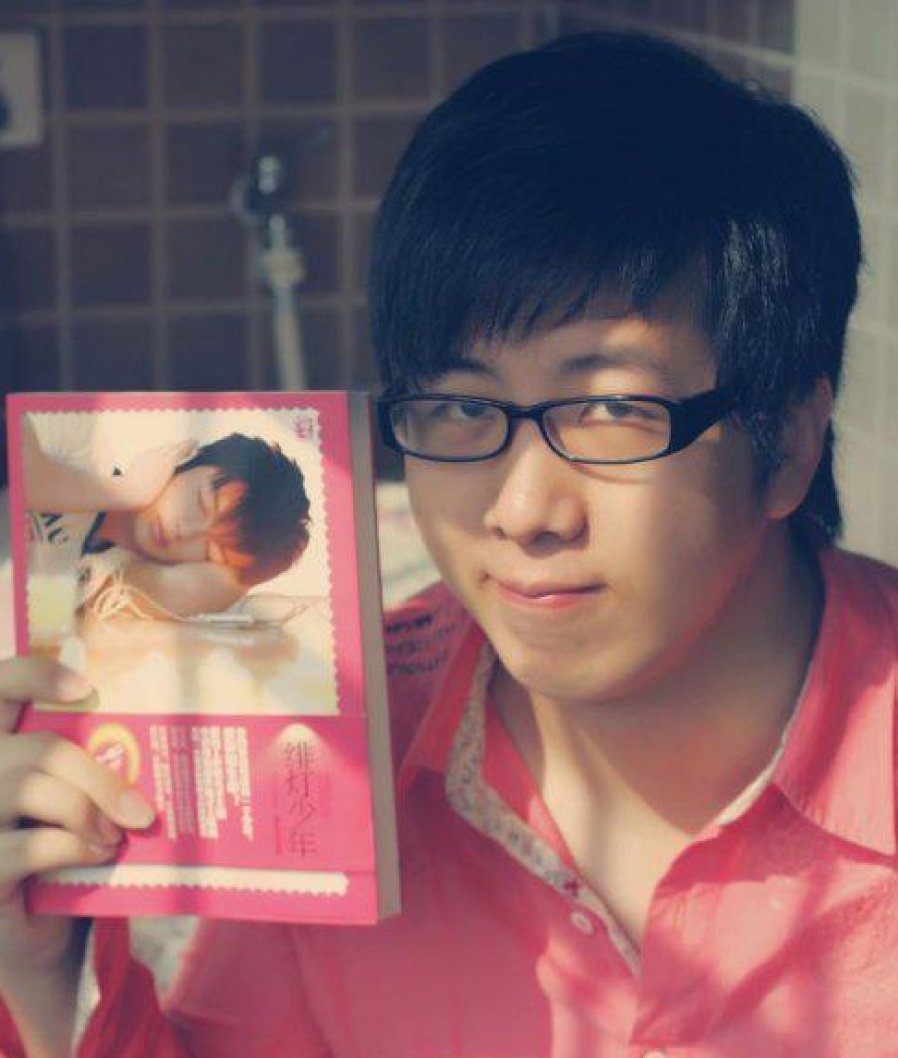 After graduation, Wang worked as editor-in-chief in several publishing companies until 2010. Starting in 2010 he focused on writing many novels of various genres (on the right image is Wang with one of his 2010 published novels "The Crimson Lantern Boy" (绯灯少年)). In 2014 Wang helped his wife adapt her novel into a drama script. Wang has written several original screenplays since then.
After graduation, Wang worked as editor-in-chief in several publishing companies until 2010. Starting in 2010 he focused on writing many novels of various genres (on the right image is Wang with one of his 2010 published novels "The Crimson Lantern Boy" (绯灯少年)). In 2014 Wang helped his wife adapt her novel into a drama script. Wang has written several original screenplays since then.

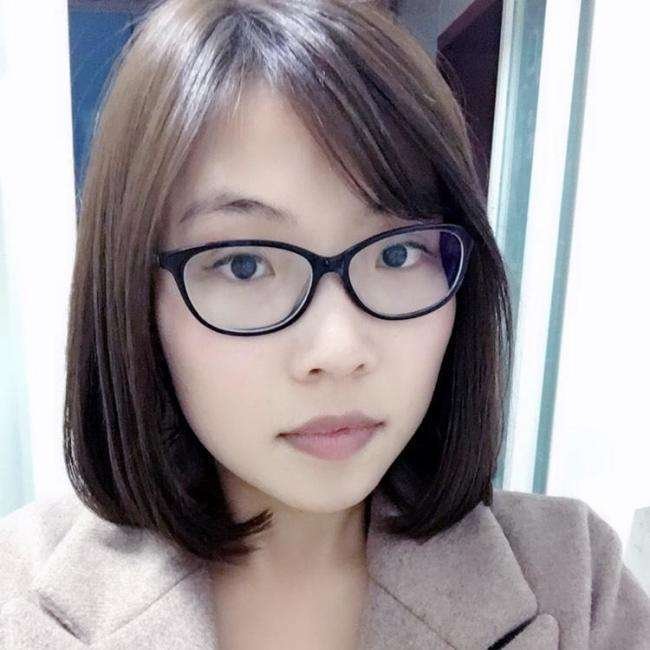 Shui Qian Mo (水阡墨), further referred to as Shui, was born in 1986. In 2004, while still in high school, she started writing novels. Shui never finished high school, but she became a popular novelist instead. In 2007, she published her first booklet. Her unique fresh and clear language style attracted readers. Since then her works were widely sought after and she became a best-selling author. In 2009,
Shui Qian Mo (水阡墨), further referred to as Shui, was born in 1986. In 2004, while still in high school, she started writing novels. Shui never finished high school, but she became a popular novelist instead. In 2007, she published her first booklet. Her unique fresh and clear language style attracted readers. Since then her works were widely sought after and she became a best-selling author. In 2009, 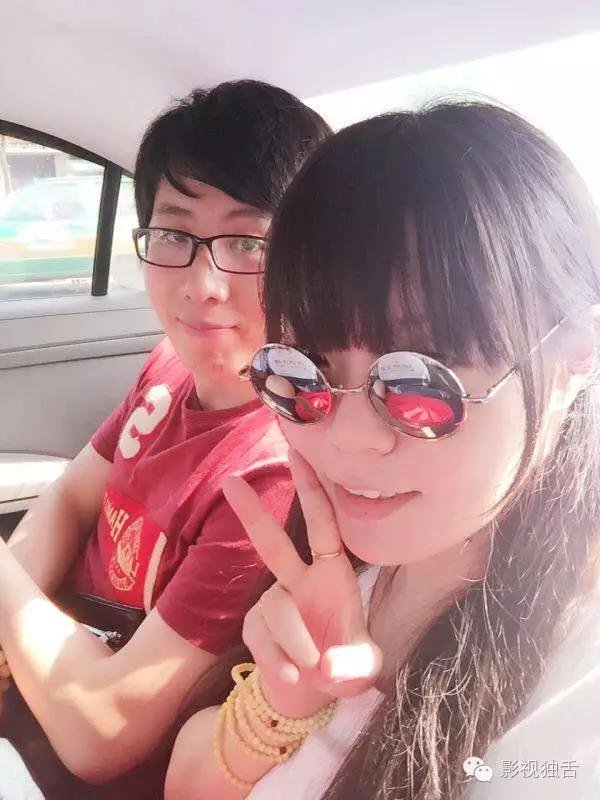 Shui focused on the creation of urban romance novels. Her first urban novel " Growing Old If You Don't Love Each Other" (再不相爱就老了) was a success and reprinted three times within a month after its release. Shui's other popular work "The First Love in the Universe" (宇宙第一初恋) was sold the foreign language copyright. Moreover, her three collections of early short stories were published in Taiwan. In 2014, Shui became a screenwriter and adapted her novel "My Wonderful Boyfriend" (我的奇妙男友) into a TV series. Shui met her then-husband Wang Xiong Cheng (right image), who was editor-in-chief at Houhao Studio that published her novels.
Shui focused on the creation of urban romance novels. Her first urban novel " Growing Old If You Don't Love Each Other" (再不相爱就老了) was a success and reprinted three times within a month after its release. Shui's other popular work "The First Love in the Universe" (宇宙第一初恋) was sold the foreign language copyright. Moreover, her three collections of early short stories were published in Taiwan. In 2014, Shui became a screenwriter and adapted her novel "My Wonderful Boyfriend" (我的奇妙男友) into a TV series. Shui met her then-husband Wang Xiong Cheng (right image), who was editor-in-chief at Houhao Studio that published her novels.

Shui's novel "My Wonderful Boyfriend" was adapted into My Amazing Boyfriend Season 1 (2016) and My Amazing Boyfriend Season 2 (2019). The prequel tells the story of mutant Xue Ling Qiao (Kim Tae Hwan), who has been asleep for centuries and is awakened by the unpopular actress Tian Jing Zhi (Janice Wu) in a car accident. Because after awakening he only knows the actress, to survive he then forces his way into living at her house. Of course, Tian Jing Zhi tries her best to get rid of the "monster". Applying the cohabitation trope, Shui developed a hilarious interspecies romantic plot between the naive and silly Tian Jing Zhi and the quiet and brooding Xue Ling Qiao. In its sequel, Shui skilfully continues the story when Season 1 ends with Xue Ling Qiao leaving Tian Jing Zhi for her safety, upon realizing that she becomes a target of the bad guys. In Season 2, when Xue Ling Qiao (Mike Angelo) finds out that Tian Jing Zhi (Yu Shu Xin) is pregnant with his child, he returns and moves next door to protect the mother and child quietly.
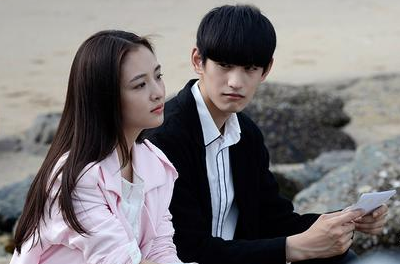 Janice Wu and Kim Tae Hwan in My Amazing Boyfriend Season 1 Janice Wu and Kim Tae Hwan in My Amazing Boyfriend Season 1 | 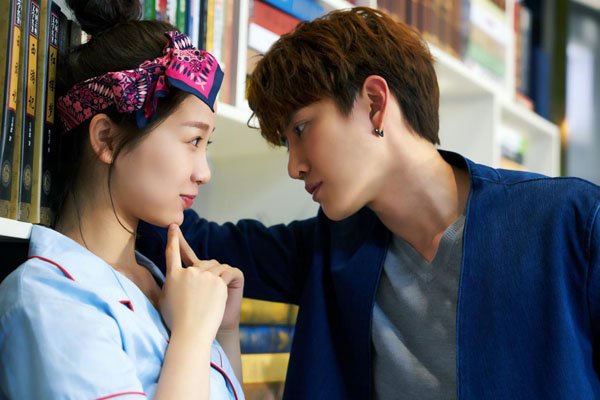 Yu Shu Xin and Mike Angelo in My Amazing Boyfriend Season 2 Yu Shu Xin and Mike Angelo in My Amazing Boyfriend Season 2 |
Despite her being the original creator, it took Shui two years to write the screenplay with her husband's help. In an interview, she acknowledged that screenwriting is challenging because of the core difference between the novel plot and the drama plot, and the change in the characterization. Novels, in general, are not created to fit film or television structures. A novel expresses the author's idea, which is relatively subjective. Meanwhile, a screenplay needs to consider the target audience, and everyone has different perspectives and feelings. Shui gave an example of keeping the love line and the suspense line supporting each other, moving the plot forward, and keeping the audience interested.
Although an author has a chance to make adaptations or be involved in a screenwriting team, it is difficult for the author to jump out of his/her original framework. It's even more difficult to achieve unity between the author and the screenwriter because of their style differences. As a result, many times dramas produced only retained the titles and the mainframes of the original works. The authors are not involved and the details are changed, resulting in dissatisfaction among the novel's fans.
the drama producer from Huace Media Film & TV production company. |
As for characterization, Shui had to modify the character design of the male protagonist. In the novel, Xue Ling Qiao is a vampire, and many plots are related to blood. Vampires are mythical creatures from European folklore. The Chinese government, through the censorship agency NRTA, prohibits Western influence in its shows. When changing Xue Ling Qiao's nature, Shui thought of many ways to maintain the dramatic function of the original Xue Ling Qiao, including the mystery and handsomeness of a vampire. At first, she was worried that implementing genetic mutation on Xue Ling Qiao would make him less attractive, but in the end, his character is not too inconsistent with the original plot.
When making the sequel, Shui already prepared the screenplay by the end of 2015. Initially, the production team wanted to keep the original leading actor and actress. Unfortunately, when the Hallyu ban was implemented in 2016, which prohibited South Korean artists from performing in China, the production team couldn't recast Kim Tae Hwan who is a South Korean actor. Moreover, Janice Wu couldn't return either because of a scheduling conflict. Shui, who already wrote the screenplay with Janice Wu and Kim Tae Hwan's characteristics in her mind, had to change the script. Since Mike Angelo is a more experienced actor than Kim Tae Hwan (Season 1 was Kim's acting debut), Shui created a more attentive and expressive Xue Ling Qiao in Season 2. Shui also created a more mature Tian Jing Zhi, who although still silly, is a mother-to-be, so she seriously thinks about her and her baby's future and is assertive to be an independent single mom despite Xue Ling Qiao's marriage proposal.

After My Amazing Boyfriend, Wang and Shui officially worked as a screenwriter team and created original screenplays, starting with Find Yourself (2020) - alternative/native title: Next Stop is Happiness (下一站是幸福). In conjunction with focusing on urban romance stories, they created He Fan Xing (played by Victoria Song), a 32-year-old career woman, single, who lives in the cosmopolitan city of Shanghai with her family. Despite her modern lifestyle, she faces the social stigma of singledom and the pressure of getting married. Being in their early 30s themselves, the screenwriters must've known single female friends and acquaintances and were familiar with similar circumstances. They also created another situation that potentially happens to 30-something single ladies in the form of May-September romance: a romantic relationship where one partner is significantly older than the other). In this drama, Yuan Song (Song Wei Long), 10 years her junior, is an intern at her company. A romance quickly develops, but as He Fan Xing faces societal norms against dating a much younger man, she insists that their relationship be kept secret and holds back her full commitment to Yuan Song. Being successful in her career also makes He Fan Xing not fully disclose her vulnerability to Yuan Song and shows only her best side.
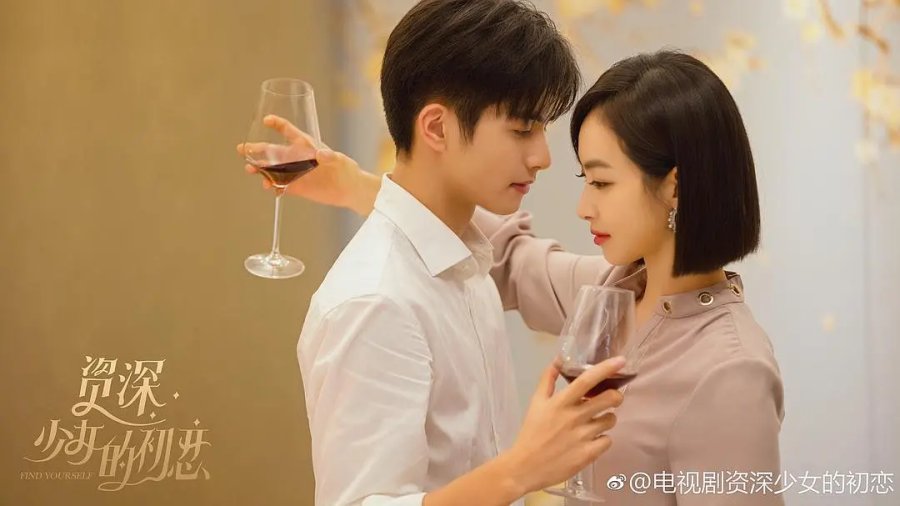 Yuan Song and He Fan Xing Yuan Song and He Fan Xing | 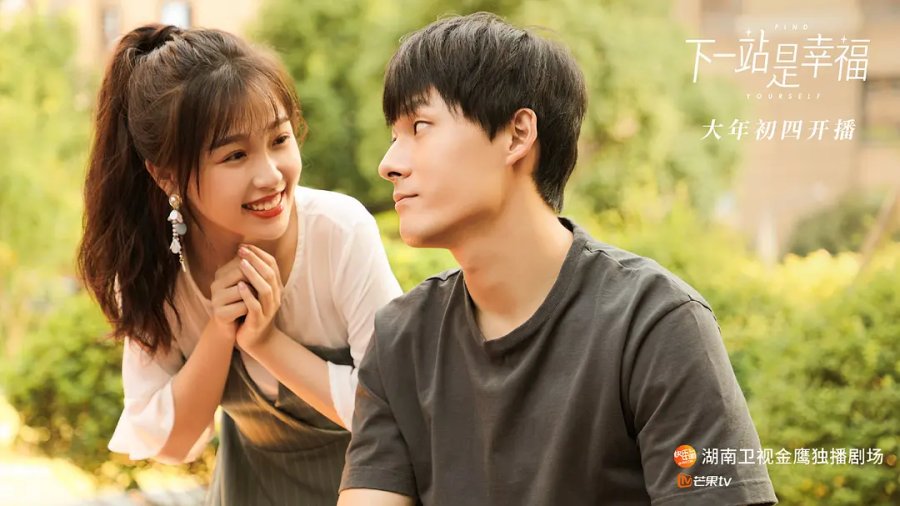 Cai Min Min and He Can Yang Cai Min Min and He Can Yang |
After many episodes of He Fan Xing's contemplation and indecisiveness about her relationship, naturally, audiences might get bored. Luckily we got our second couple: He Can Yang (Zhang Yu Jian), He Fan Xing's twin brother, and Cai Min Min (Yu Shu Xin). Interestingly, Wang and Shui didn't create their relationship as a filler. This couple also faces an issue: He Can Yang's parents' disapproval. You see, He Can Yang is 32 and Cai Min Min is 20. Moreover, he is a university lecturer and she is his student. Angry He Can Yang argues that their parents apply double standards for the twins and they favor their daughter over their son. Although they initially mildly disapprove of He Fan Xing and Yuan Song because of the huge age gap, their parents consider her happiness more than social norms. However, they are against He Can Yang and Cai Min Min's relationship. The fact that Wang and Shui created two age-gap romance situations in the drama script makes me wonder about modern Chinese public views on large age-gap romance, gender inequality, career women, marriage compatibility, and maturity vs immaturity. Or, if a teacher-student romance is more of a taboo than a large age-gap romance?
 Find Yourself is officially being remade into the upcoming Thai drama under the same title Find Yourself - alt/native title: Find Love With Your Heart (หารักด้วยใจเธอ), produced by a collaboration between Insight Entertainment and GMMTV Thailand. I only watched the trailer, not the drama, and it seems they made differences from the original plot by introducing more daring issues. So I assume Thailand only bought the right to remake the drama with the same plot setup, not the screenplay copyright. Still, I wonder how the Thai public views the social issues I mentioned above. If you're watching the drama, what do you think?
Find Yourself is officially being remade into the upcoming Thai drama under the same title Find Yourself - alt/native title: Find Love With Your Heart (หารักด้วยใจเธอ), produced by a collaboration between Insight Entertainment and GMMTV Thailand. I only watched the trailer, not the drama, and it seems they made differences from the original plot by introducing more daring issues. So I assume Thailand only bought the right to remake the drama with the same plot setup, not the screenplay copyright. Still, I wonder how the Thai public views the social issues I mentioned above. If you're watching the drama, what do you think?

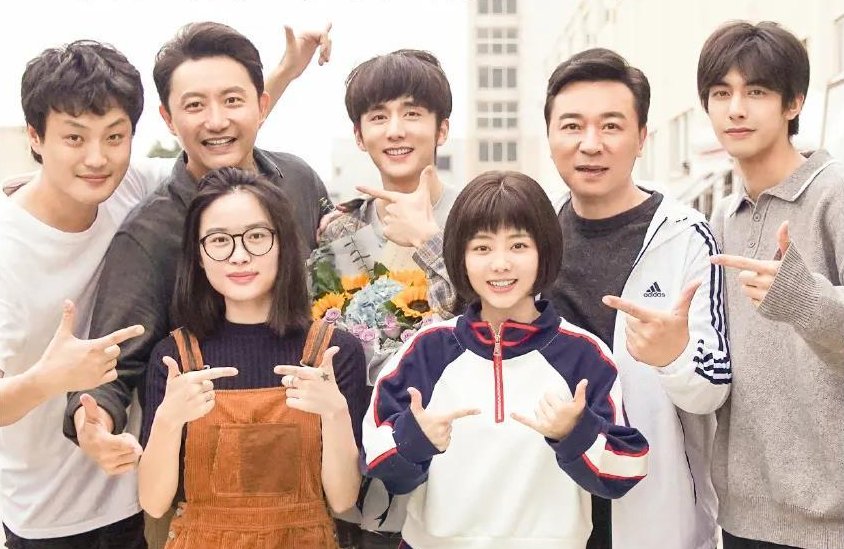 The leading actors with Director Ding Zi Guang and Producer Long Ya from Huace Media. Coming from the same production company, the director and producer have worked together with Wang and Shui in several dramas. The leading actors with Director Ding Zi Guang and Producer Long Ya from Huace Media. Coming from the same production company, the director and producer have worked together with Wang and Shui in several dramas. |
The screenwriter couple took family issues further to a bigger scale in the 2020 drama Go Ahead. Since the drama is very popular on MDL and has a high rating (8.9 at the time this article was submitted), I will not discuss the drama itself further. If you haven't watched it and are interested in watching it, you can read hundreds of reviews on this site. However, I will discuss some interesting issues of this drama connecting to the screenwriters.
Since the native title of this drama is 以家人之名 translated to English as In the Name of the Family, automatically Chinese audiences expected this drama to be a family drama everyone would love. Wang and Shui started the script by introducing three children who lost their mothers and two loving fathers living together. The pain of losing the mother of the three children made the audience feel touched. But the funny daily life of the three children made the audience laugh so hard that their stomachs ached. Along the way, the adult versions of Li Jian Jian (Tan Song Yun), Ling Xiao (Song Wei Long), and He Zi Qiu (Zhang Xin Cheng), grew up together. Then the children separated when Ling Xiao left to stay with his biological mother and He Zi Qiu with his biological father.
When the adult trio came back to live together with Father Li (Tu Song Yan) and Father Ling (Zhang Xi Lin), Wang and Shui introduced the romance plot, this is when the drama got mixed reviews from Chinese viewers. The sterling opening rating of 8.6 in Douban plummeted to 6.7 as this article was submitted for editing. Many viewers did not enjoy the storyline of two so-called adoptive brothers suddenly falling in love with their biologically unrelated sister who they grew up with referring to it as a dog-blood (狗血), a cheesy drama with too many cliches and plot holes (Wikipedia). Chinese audiences blamed the screenwriter duo for the messy plot they wrote, many stated they didn't want to watch any future dramas written by Wang and/or Shui. On the contrary, the drama was a big hit in the rest of Asia and received generally positive reviews internationally. Despite the mixed reviews, Wang and Shui were nominated for several awards in China and won Best Young Screenplay at Golden Screenwriter's Night (2021). Internationally, they were also nominated for Best Screenwriter at the Seoul International Drama Awards 2021 (source: IMDb). Go Ahead is also being adapted into the Korean version, Family by Choice, which is scheduled to be aired this year.

It appears that critical reviews and low ratings on Douban for Go Ahead might have affected the future works for this couple. Shui Qian Mo took a break from screenwriting for two consecutive dramas. But the family still needed to put rice on the table. Following Go Ahead, Wang Xiong Cheng wrote original screenplays for two dramas. The first script was for the 2021 romcom The Day of Becoming You (native title 变成你的那一天). Although still with Huace Media, at this time Wang joined the production team with Zhang Sheng An, Gong Yu, and Wang Xiao Hui as the producers and Wang Zheng as the director.
In The Day of Becoming You, Wang uses a popular trope that has been easily done in dramas from every country but China: body swapping, due to the restrictive themes regulated by China's National Radio and Television Administration (NRTA). Wang started the screenplay, thus the beginning of the drama, with an opening scene that is immediately followed by the next scene of a woman typing the opening scene and dialogues. Wang wanted the NRTA reviewers to know from the start that the story is just a novel draft. His strategy worked: the drama passed the review!
For the rest of the drama, the viewers are entertained by the body swap between Jiang Yi (Zhang Xin Cheng), the leader of a boyband, and Yu Sheng Sheng (Liang Jie), an entertainment reporter. The two are forced into many outrageous situations after they switch bodies. The sudden change catches them off guard and with only each other to turn to for support in the days and nights that followed, Jiang Yi and Yu Sheng Sheng gradually fall in love.
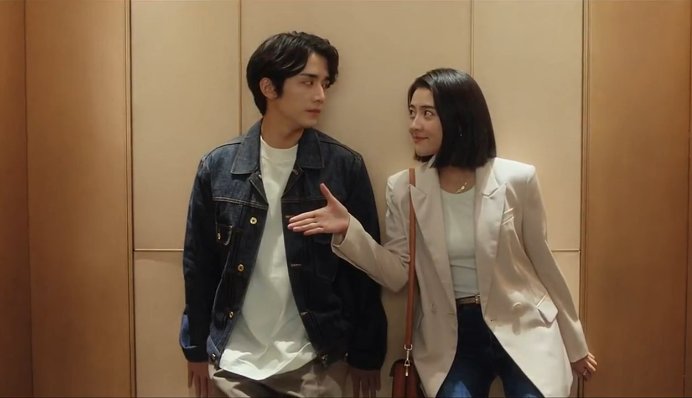 |
Furthermore, Wang also implemented other risky features in romance story-telling by using the super old tropes of the old cold man/warm woman and the opposite attracts. Jiang Yi is cold and distant, Yu Sheng Sheng is bubbly (see the above image). Wang was able to refresh these boring cliches. Firstly, Wang 'forced' Jiang Yi and Sheng Sheng to adapt and accept each other, since they live inside the other character's body and personality, tweaking an old saying "Put yourself in someone else's shoes". Secondly, although Jiang Yi and Sheng Sheng are 'obliged' to be the other person, after learning about the other's good qualities they can implement for themselves, Jiang Yi and Sheng Sheng gradually go through believable character growth while genuinely accepting each other.
How was Wang able to create believable character growth of a couple who accept and adapt to each other? While watching this drama I was amazed at how a male screenwriter was able to create a female lead with good character growth. At that time I didn't know that he was married. Now that I knew that he is married to Shui who is also a screenwriter, I could picture that while writing this screenplay, they discussed the opposite gender's reaction and possibly even acted out the body swapping. Creating a couple with a natural process of accepting and adapting to each other can take a long time (many episodes), thus Wang emphasized a healthy and mature relationship and didn't add distractions (for example competing side stories or strong villains).
In the end, Wang got his reputation and confidence back, as The Day of Becoming You is successful with Douban ratings 7.6, which is considered good because Douban raters usually look down and critical of Chinese idol dramas.

Using a similar success recipe: a healthy relationship, character growth, and supportive characters, Wang tried again his luck with Hi Venus (2022), alternative/native title: I May Have Met a Savior (我可能遇到了救星). It appears that Liang Jie was his fortune mascot, as she acted again in this drama as pediatrician Ye Shi Lan, paired with Joseph Zeng as the new director Lu Zhao Xi at the hospital where she works. 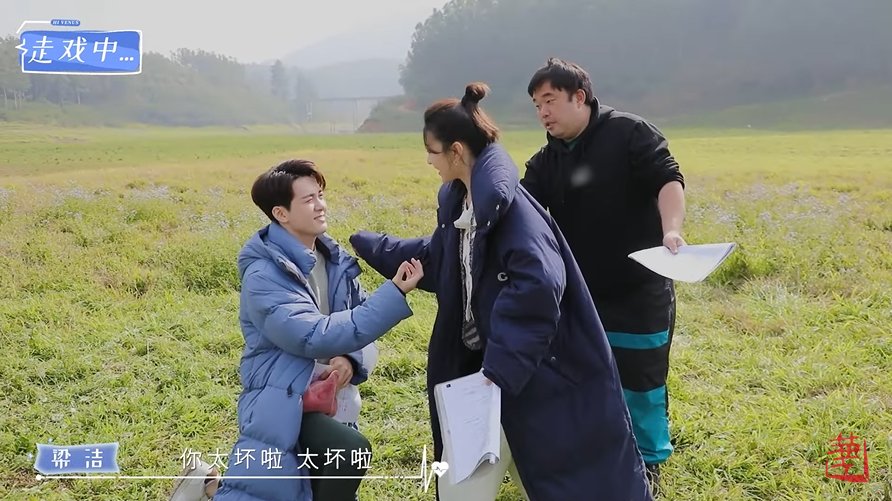 At first, viewers were worried about this pairing, as they collaborated before as a couple in Time Flies and You are Here (2021), and the drama was a flop. It turned out it was the opposite with Hi Venus. So, it's obvious for a drama to become successful, choosing the right screenwriter plays a crucial role in writing a good plot and characterizations. And it was a plus, that the screenwriter collaborated with the same production team that made The Day of Becoming You, including Director Wang Zheng (in the right image directing Joseph Zeng and Liang Jie).
At first, viewers were worried about this pairing, as they collaborated before as a couple in Time Flies and You are Here (2021), and the drama was a flop. It turned out it was the opposite with Hi Venus. So, it's obvious for a drama to become successful, choosing the right screenwriter plays a crucial role in writing a good plot and characterizations. And it was a plus, that the screenwriter collaborated with the same production team that made The Day of Becoming You, including Director Wang Zheng (in the right image directing Joseph Zeng and Liang Jie).
In this drama, Wang Xiong Cheng focused on developing the Female Lead character, as she is a character many adult female viewers can relate to being a modern-day working woman trying to navigate her career in a big city and living far away from her family. Ye Shi Lan is strong and independent, full of a sense of justice and responsibility. She doesn't like to suck up to people, which makes people feel difficult to get along with her. Because Shi Lan offended someone, her request to return to work after her voluntary work at a rural clinic was denied. In her personal life, because of her unfortunate family background, Ye Shi Lan is insecure, self-conscious, and reserved. Despite obstacles at work, Shi Lan perseveres as she wants to buy a house with the company's loan that she won't need to depend on or bother anyone.
By chance, Shi Lan ran into Lu Zhao Xi at the rural clinic and mistaken him for a scammer. When Shi Lan was transferred back to the hospital, after being embarrassed that the 'scammer' was her new boss, she accepted Zhao Xi's offer to fill in the temporary assistant position. Although this is a relationship between two people, since screenwriter Wang's focus is Shi Lan's character growth, there is not much character growth in Zhao Xi. He is the near-perfect boyfriend/husband material. Zhao Xi is confident and calm, with strong adaptability, courage, strategy, and a little mischievous. He grew up in a wealthy family and was well-educated and well-versed.
The romance development itself is as realistic as it can be. It's a natural slow burn, subtle pull-push relationship, with humorous dialogues. As a normal office romance, they meet around coffee breaks, lunch times, and after-work dinners, having well-meaning conversations while sharing their ideas, happiness, worries, or disagreements. There is no prolonged misunderstanding, unnecessary love triangle, or toxic characters who oppose their relationship. The supportive people close to them are intelligent and analytical, giving Shi Lan and Zhao Xi insights and sound advice, helping them to see themselves and find each other.
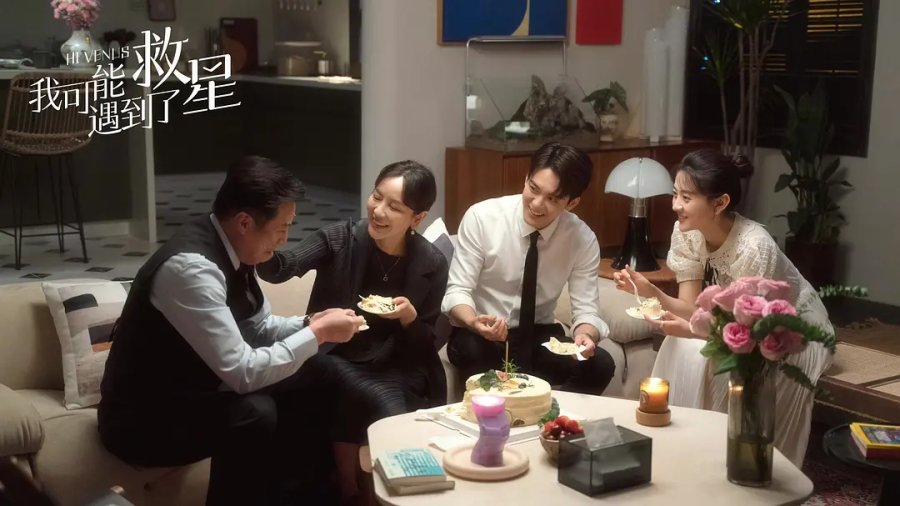 |
I also think that Wang playfully added two characters to represent him and his wife Shui in the other two main characters: Lin Kai Wen/Kevin (Zhou Zi Han) and Yao Jia Jia (Li Lin Fei). Jia Jia, Shi Lan's best friend, is a romance web novel author who is good at finding and writing inspiration in life. Kevin is Zhao Xi's special assistant who reads Jia Jia's novels and uses the formula in the romance to understand the progress of his boss's relationship. Their conversation about romantic stories, drama plots, and characters are included as the first and last GIFs in this article.
If I have to criticize Wang's writing, the only drawback is the lack of a medical environment plot in which the couple is in. Thus the synopsis description of the couple "working side-by-side to save lives" is dramatized. Most work Shi Lan does is administrative work as Zhao Xi's assistant. Even though she is a pediatrician, I hardly saw her working on children's healthcare cases. There are some hospital programs shown, that in my opinion are more social advertisements for public education to pass the NRTA review. The problems Zhao Xi encounters with his office adversaries are also more administrative (office politics) than medical. The drama climaxes on a hospital issue that is just resolved in mediocrity. In my observation, it seems common in Chinese romance-focus dramas that in-depth research on characters' occupations and business backgrounds is lacking.
Probably it was a double meaning for Wang to title his screenplay I May Have Met a Savior since this drama also saved and secured his job as a romance-genre screenwriter after the Go Ahead flop. Hi Venus is a success of his work, with Chinese viewers' acceptance and satisfaction of this drama shown on a remarkably high Douban rating of 8.1, making it #8 in the Top 12 highest-rated Chinese modern dramas of 2023 (source: Marcus here!).

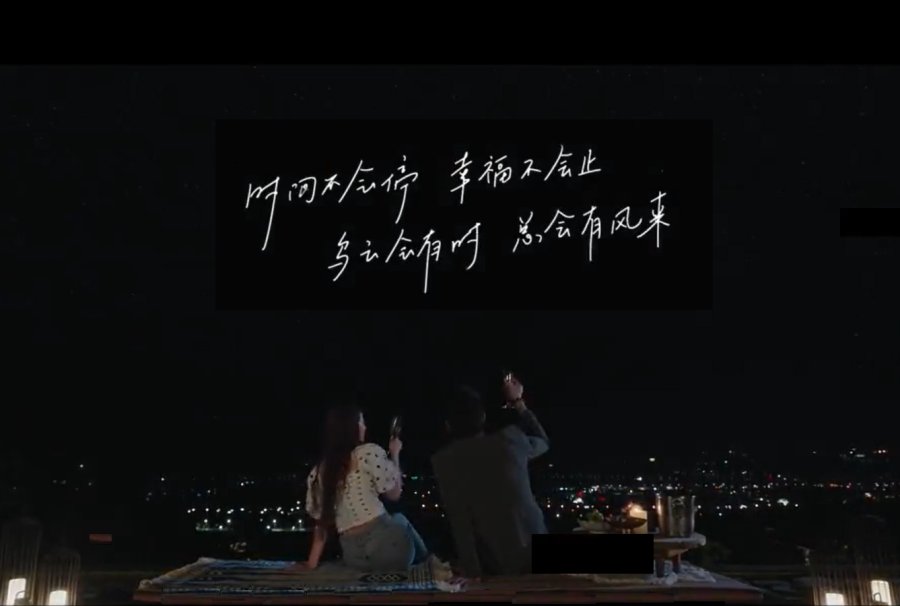 After taking a break for two years, Shui joined her husband again to write the screenplay of Meet Yourself, alternative/native title: Go to a Windy Place (去有风的地方). The literal title depicts Dali, China, the breathtaking shooting location of this drama, which is also famous for its high wind, hence it's called "Windy City". The figurative meaning of the title is: like flowing wind, transformation changes always come to replace difficult situations that seem stagnant. As quoted at the end of this drama (left image): "Time will not stop, happiness will not end. Now and then there will be dark clouds, but there will always be wind." (Ep. 40, English translation).
After taking a break for two years, Shui joined her husband again to write the screenplay of Meet Yourself, alternative/native title: Go to a Windy Place (去有风的地方). The literal title depicts Dali, China, the breathtaking shooting location of this drama, which is also famous for its high wind, hence it's called "Windy City". The figurative meaning of the title is: like flowing wind, transformation changes always come to replace difficult situations that seem stagnant. As quoted at the end of this drama (left image): "Time will not stop, happiness will not end. Now and then there will be dark clouds, but there will always be wind." (Ep. 40, English translation).
For a fun fact, a week after the show was first screened in early January 2023, online searches for Dali doubled, and the little ancient town Shaxi, where many of the scenes were shot, was flocked by large numbers of tourists during the Chinese New Year holiday (Source: China Daily). I also wondered if Wang and Shui visited Dali before writing the script for this drama to get some inspiration. They truly captured the Dali nature, lifestyle, culture, and atmosphere in their script!
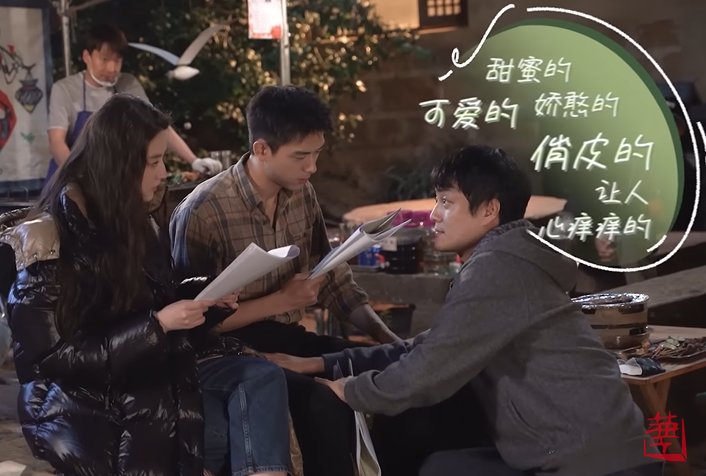 Once again, the screenwriter couple collaborated with Director Ding Zi Guang, who has directed their other works. In the right image, we see the director discussing the script with the leading actress Crystal Liu (as the Female Lead Xu Hong Dou) and the leading actor Li Xian (as the Male Lead Xie Zhi Yao). A shattering life event changes the outlook of life for Xu Hong Dou, waking her up from what she thought was her planned life and finding herself lost. She begins to question the meaning of life and what she wants in her life. After visiting Dali to fulfill a promise, she finds the answers she's looking for, healing, and romance as well. Hong Dou met a local man Xie Zhi Yao, who left a high-paying job and returned to develop the economy of his hometown.
Once again, the screenwriter couple collaborated with Director Ding Zi Guang, who has directed their other works. In the right image, we see the director discussing the script with the leading actress Crystal Liu (as the Female Lead Xu Hong Dou) and the leading actor Li Xian (as the Male Lead Xie Zhi Yao). A shattering life event changes the outlook of life for Xu Hong Dou, waking her up from what she thought was her planned life and finding herself lost. She begins to question the meaning of life and what she wants in her life. After visiting Dali to fulfill a promise, she finds the answers she's looking for, healing, and romance as well. Hong Dou met a local man Xie Zhi Yao, who left a high-paying job and returned to develop the economy of his hometown.
However, romance is not the main focus, as the drama feels more like a slice-of-life genre. The plot is simple, rather mundane, but relaxing like taking a retreat vacation at a humble and peaceful place. Wang and Shuo did not write a plot-driven drama but a character-centric journey of life. Besides Hong Dou and Zhi Yao with their personal and relationship challenges and struggles, the screenwriters also added (so) many supporting roles that have their own life stories to tell and characters to develop. I thought they already tackled a big project portraying several families in Go Ahead, in Meet Yourself they dared enough to cover almost the whole village residents! But all characters represent everyday people like us or our surroundings. realistic with their life issues and inspiring with their quests to find answers to their problems. In my opinion, no characters seem fillers. Their interactions and conversations are related to each other, and their dialogues are like a tapestry woven with countless simple and fun chats and insightful discussions of the philosophy of life. To explore that many multifaceted characters, I imagined Wang and Shui interviewed myriads of people with similar backgrounds as well as seeking wise counsel about the life issues presented.
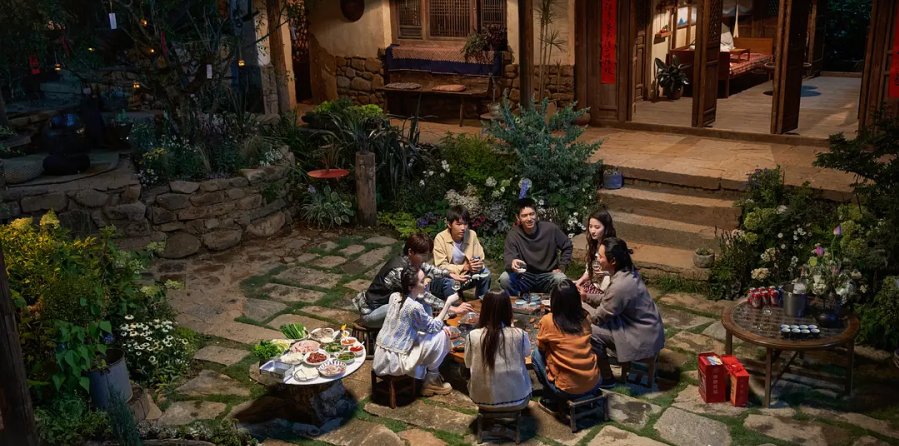 |
Now, if you are interested in watching this drama but the slice-of-life theme is not your cup of tea, you probably wonder if it's too slow and drag and will make you fall asleep. My advice is to watch only one episode a day and specifically choose a relaxing time of the day when after work/school/house chores. Life genre drama is not my favorite genre either, but the tip worked for me!
Meet Yourself won several awards in 2023, including Best Series at the Seoul International Drama Awards, Best TV Series at the Macau International TV Festival, and Breakthrough and Innovation TV Series of the Year at the Weibo Awards Ceremony. Crystal Liu won Best Performance by an Actress in a Television Series at the Macau International TV Festival, and Li Xian won Expressive Actor of the Year at the Weibo Awards Ceremony. Wang Xiong Cheng and Shui Qian Mo were nominated for Best Original Screenplay at the Golden Screenwriters' Night (source: IMDb). 2023 concluded Meet Yourself with an astonishing Douban rating of 8.7, making it #3 in the highest-rated Chinese modern dramas of 2023! (source: Marcus here!)
 You probably have watched at least one or even all of the dramas described above and finally, now you just found out they are all written by the same screenwriters! Except for My Amazing Boyfriend, which is based on Shui's novel that was written in her early twenties, did you notice the similarity of their works? As I mentioned in the Hi Venus section, Wang and Shui represented themselves as the supporting characters Yao Jia Jia (the romance novelist) and Kevin (the reader). Thus, their conversation pretty much hinted at Wang and Shui's recipe used in all their amazing screenplays adapted to popular and successful dramas we have watched and enjoyed. Let me summarize their recipe taken from the GIF below. Wang and Shui simply write scripts about daily life, their characters use the logic of common people, and the love stories they create are mature romances written delightfully to everyone's liking.
You probably have watched at least one or even all of the dramas described above and finally, now you just found out they are all written by the same screenwriters! Except for My Amazing Boyfriend, which is based on Shui's novel that was written in her early twenties, did you notice the similarity of their works? As I mentioned in the Hi Venus section, Wang and Shui represented themselves as the supporting characters Yao Jia Jia (the romance novelist) and Kevin (the reader). Thus, their conversation pretty much hinted at Wang and Shui's recipe used in all their amazing screenplays adapted to popular and successful dramas we have watched and enjoyed. Let me summarize their recipe taken from the GIF below. Wang and Shui simply write scripts about daily life, their characters use the logic of common people, and the love stories they create are mature romances written delightfully to everyone's liking.
I'm looking forward to Wang Xiong Cheng and Shui Qian Mo's future works! Hopefully, I can watch one of them this year. What about you?
How to create a mature romance?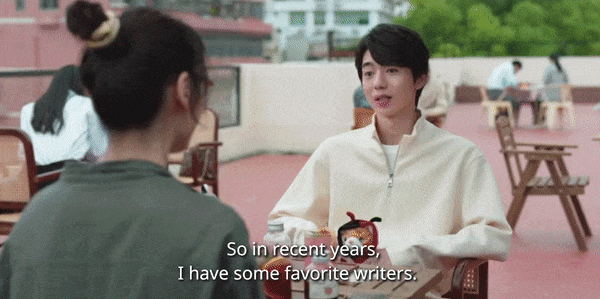 |
Thank you to the editors who edited this article! The images are linked to their sources; otherwise, they are taken from the official posters and screenshots. Both GIFs are self-made from the drama scenes. | Edited by: devitto (1st editor) |

